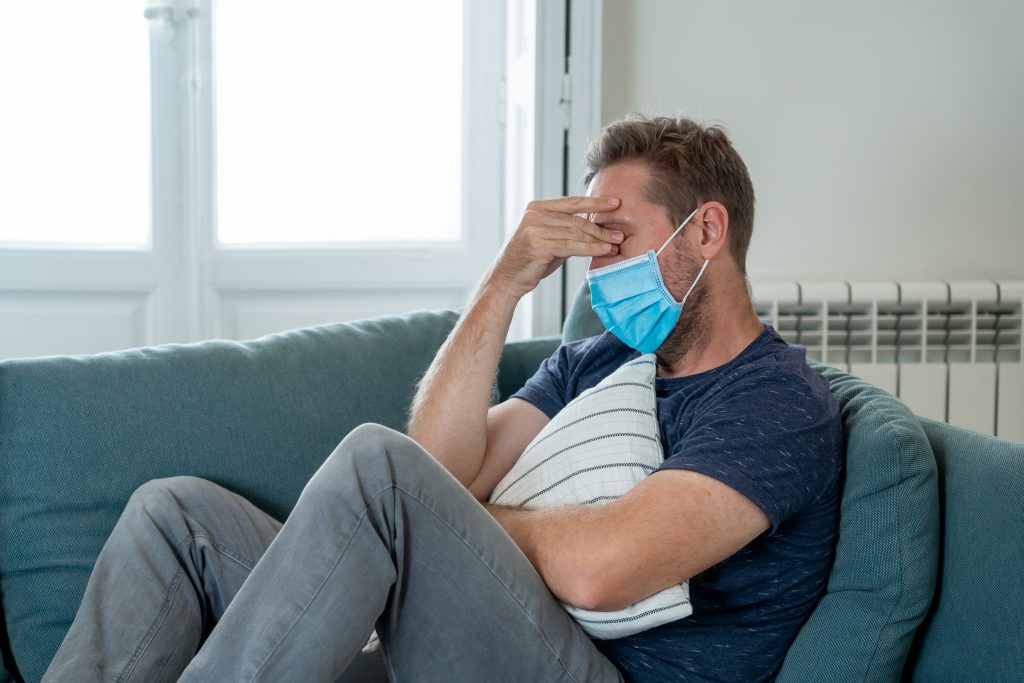Mental fatigue from Covid-19 taking its toll

A worrying drop in mental health wellbeing as a result of the impact of Covid-19 has been registered across the board in the EU including in Malta. This trend was observed in higher incidence of people feeling depressed and lonely especially those aged between 18 and 34 years.
These statistics emerged from the latest round of an EU-wide study on the impact of the pandemic on living and working conditions. Conducted by Eurofound, the exercise mapped trends in key indicators such as mental wellbeing, job and financial prospects, as well as people’s trust in institutions, government and the EU itself. These trends were measured over a year since the outbreak started, specifically in spring and summer of 2020 and in spring 2021.
It transpires that the average score in mental health wellbeing of the Maltese population had gone down from 50.1 in summer last year to 46.7 in spring 2021, whereby somebody with a score of 50 or lower is considered to be at risk of depression. This figure reflects the overall trend of Covid-19 mental fatigue in the EU where the respective figures declined from 52.7 to 45.3. Experts believe that restrictions to remain indoors, in travel and the various degrees of lockdowns imposed at irregular intervals contributed for the downward trend in mental health, as people were feeling frustrated, cut off from the rest of the world and vulnerable.
A more detailed look at the situation in Malta reveals the following:
- Those who felt lonely increased from 10.4% in summer 2020 to 18.9% in spring 2021 but were still below EU average.
- Those who felt downhearted and depressed rose from 9.3% in summer to 15.1% in spring 2021 but were nonetheless below EU average.
- Those who felt left out of society increased from 23.1% to 28.%. In this case the rate in Malta in both cases (summer and spring) was above the EU average
On a positive note, Malta ranks as the second lowest EU country, only behind Denmark, in terms of the number of people who said they were unlikely to get vaccinated against Covid-19. It transpires that only 4.4% said they were “very unlikely” to get jabbed, which is well below the EU average of 19%. A further 4.2% said they were “unlikely” to get vaccinated which is in line with the EU average of 4.4%.
Following a slow start Malta’s vaccination rate has picked up and by May 9 was the highest in Europe, ahead of the UK. This trend also reflects itself in the Eurofound survey whereby 84% of the Maltese said they were likely or very likely to get vaccinated which was well above the respective EU average of 64.4%.
Other main findings
- Existing inequalities are widening because of the disproportionate impact of the pandemic on vulnerable groups. The findings show that difficulties in making ends meet increased significantly among those already in a precarious situation. However, there was no change in Malta between summer 2020 and spring 2021 at 33.7% which was well below the EU average for spring 2021 at 45.2%
- Citizens’ satisfaction with crisis support measures has declined dramatically, with only 12% now feeling support measures are fair, down from 22% in summer 2020. Those who felt obtaining support was easy and efficient also fell from 16% in summer 2020 to 10% in spring 2021. Close to one in ten respondents have had a request for financial support rejected. However, no such trend was observed in Malta as it had the second-highest satisfaction level on government support measures in the EU behind Ireland.
- Trust in institutions has plummeted, especially in national governments which fell from 4.6/10 in summer 2020 to 3.9/10 in spring 2021. Trust in national governments across all Member States sank below levels recorded at the start of the pandemic. Trust in the EU also fell but remains higher than trust in national governments.
